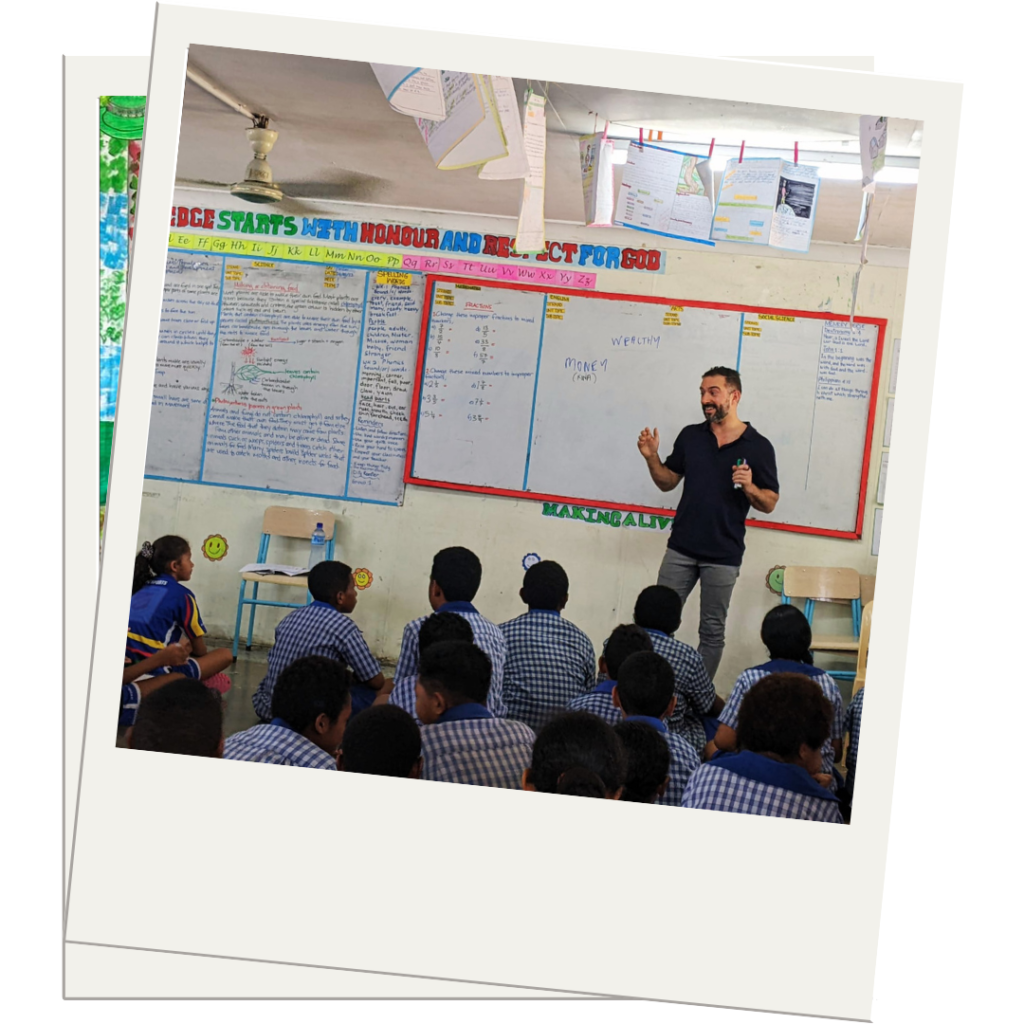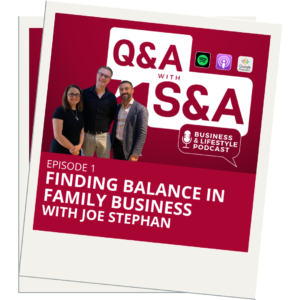It was hot. I’m talking 45 degrees or even more. My brother, James, and I were on a small bus, navigating the streets of Port Moresby. Looking out from the bus I saw a world completely different to my own, and realised that I am many miles away from Melbourne.
I saw the dense green forested natural environment of Papua New Guinea, intersected by roads and the concrete jungle of its capital. I saw swathes of young Papua New Guineans on the road side catching a curious glimpse of us as we drove by. I saw a developing nation.
PNG has a young population; 58% of the country’s population is under the age of 25. Contrast that with Australia, where less than 30% of our population falls in that demographic. Young people in Port Moresby are grappling with an unemployment crisis.
Prior to landing in Port Moresby, I didn’t realise the gravity of the problem. My involvement was almost philosophical. I knew I wanted to help those less fortunate than me with the skills I have attained through my professional life. But the problem in PNG is endemic. It’s visceral. It’s real and it resonated to my core.
The reason I am writing this, and the reason why I think it’s important that people read this, is not to position myself as some kind of white knight. It’s to shed light on the massive problem that’s happening in one of Australia’s closest neighbouring countries. I am hoping that my experience will alert others to the situation in PNG and convince them to help improve the lives of those who need it.
So whether I was previously privy to it or not, therein lies the reason why I was in PNG. I was there to help build pathways to long-term employability and work readiness. I was there with CUFA to teach the basics of financial literacy to the next generation of PNG kids.

Headed by passionate leader and CEO, Darian Clark, CUFA is an international development agency committed to alleviating poverty and creating sustainable results across the Asia Pacific. Their mission is to facilitate the development of economic capacity through education, employment and enterprise opportunities to create value and self-reliance.
CUFA are champions of the old adage, ‘teach a person to fish, and they will eat for a lifetime’. Financial literacy, which we often take for granted, helps people to self-determine and self-sustain, through education and empowerment.
We wanted to work with CUFA because their ethos resonates with us as a family. The background of the Stephan family is in academia. Our father, Magdy, was an advocate and an educator for the next generation of financial planners. He came from a migrant background and believed that education was an important and beneficial tool to improve lives and empower people.
In his biography my father said, “Throughout my teaching I likened personal Financial Planning to the medical profession and focussed the attention of my audience on the value of helping clients achieve personal financial health and not just financial wealth. … Doctors treat rich people and poor people alike. Financial Planners should also strive to assist people regardless of their wealth.”
My brother, James, and I often reflect on our father’s vision. It has made us into the people we are today. We are blessed to have the opportunities afforded to us by his efforts. We want to contribute to the community and help give these same opportunities to those who are less fortunate than us.
So that takes us to PNG.
On day 2 we were going into a local primary school for a 1 hour session with a CUFA appointed teacher. Before going to the school we were at the CUFA headquarters mapping out exactly how James and I would be involved in the course.
CUFA employs teachers to go to schools and teach subjects that aren’t part of the usual curriculum – things like financial literacy. They go into schools to teach these important life skills to the children, but also to teach the teacher how to run these programs in the schools themselves.

School, a school run by the Salvation Army. The school itself is guarded with gates and security. There were lots of young faces staring at us, smiling and a general hum of boisterous youthful exuberance. All the things you’d expect from a classroom of students: wonderful and curious, noisy yet engaged.
We were teaching this eager cohort about the connection between meaning and money; that to be wealthy isn’t necessarily about having the most money. We were teaching from a booklet that we had developed that covers all the components of wealth like relationships, personal growth, and community. This booklet is available here so that parents everywhere, not just in the PNG, to help their children understand these important lessons.

Our time in that classroom flew by. It was exhilarating to be a part of something that is so valuable and important. I feel honoured to be able to plant the seed about the importance of money and its connection to the other components of wealth.
The idea of saving money – something that seems so simple – can be transformational. Not only to the students, but to their teachers.
It was an amazing experience for us to see first-hand the work CUFA is doing in the Asia-Pacific region. We are proud to be a part of this story. To be a part of something so valuable, that has the potential to enrich the lives of so many young people.
CUFA is about empowerment. Empowering young children to be able to write their own life story. There are so many privileges afforded to us in the western world that can easily be taken for granted. With staggering youth unemployment, it’s paramount that we give our time, effort and love to countries like PNG.
We are excited to continue to work with CUFA to bridge the gaps in education, employment, and opportunity. The link between what financial advisors do for a living and what CUFA advocates for is clear. I am happy to speak to any colleague who wishes to understand more about CUFA’s objectives and donate time or resources.
For more information, read our article about working with CUFA here!






